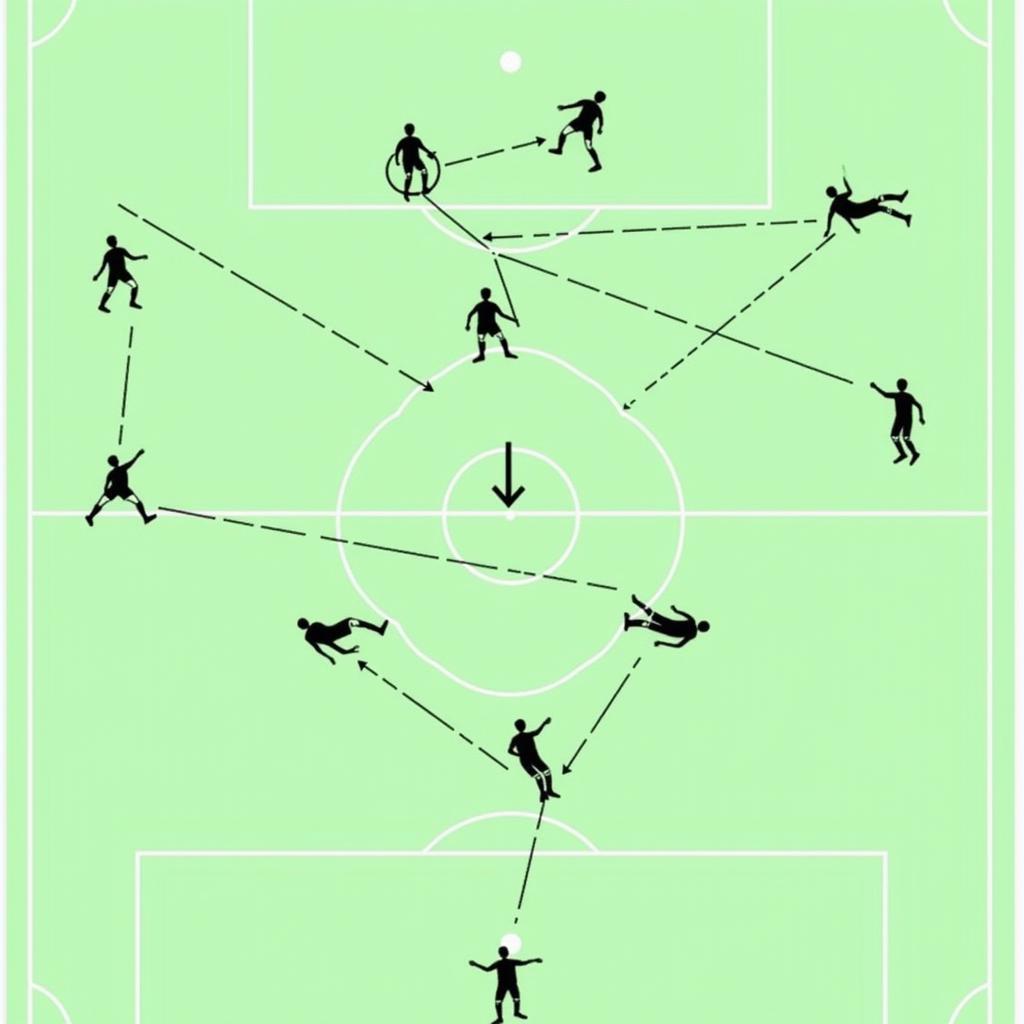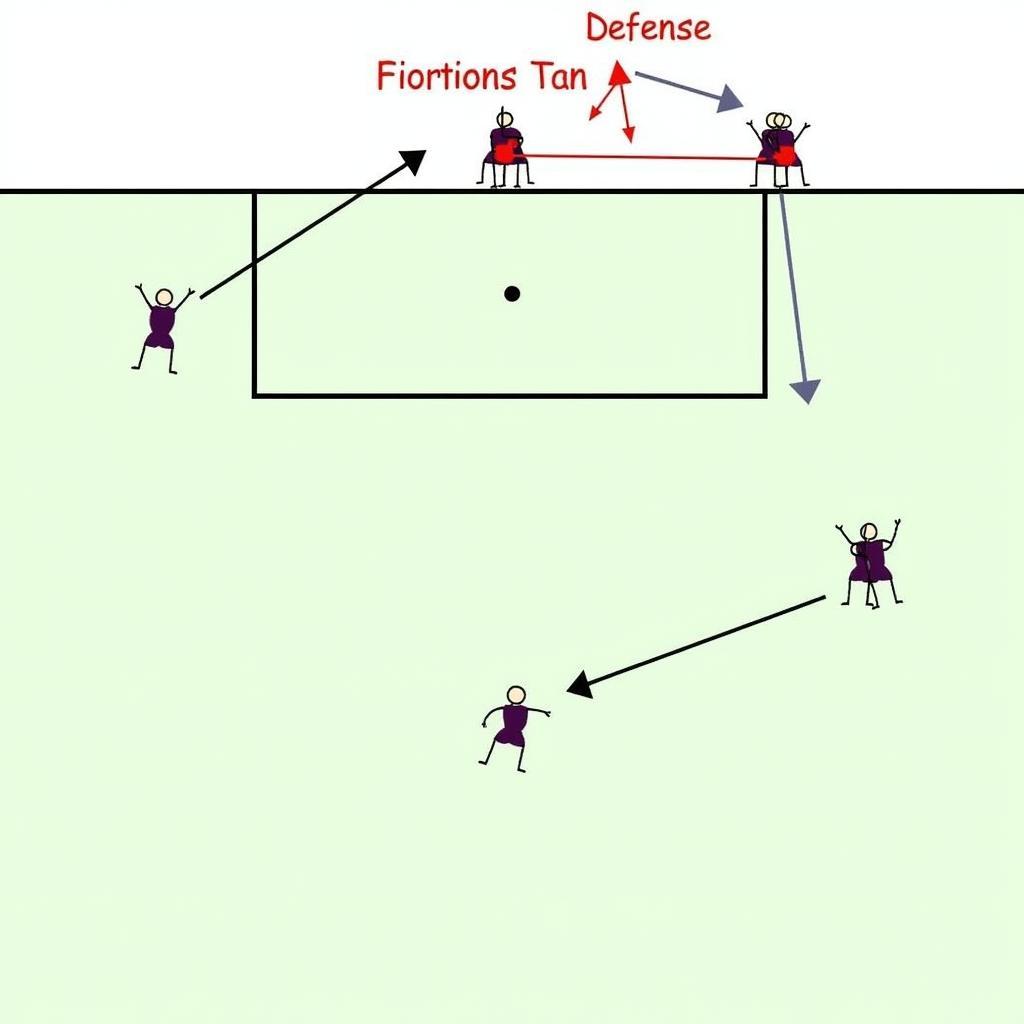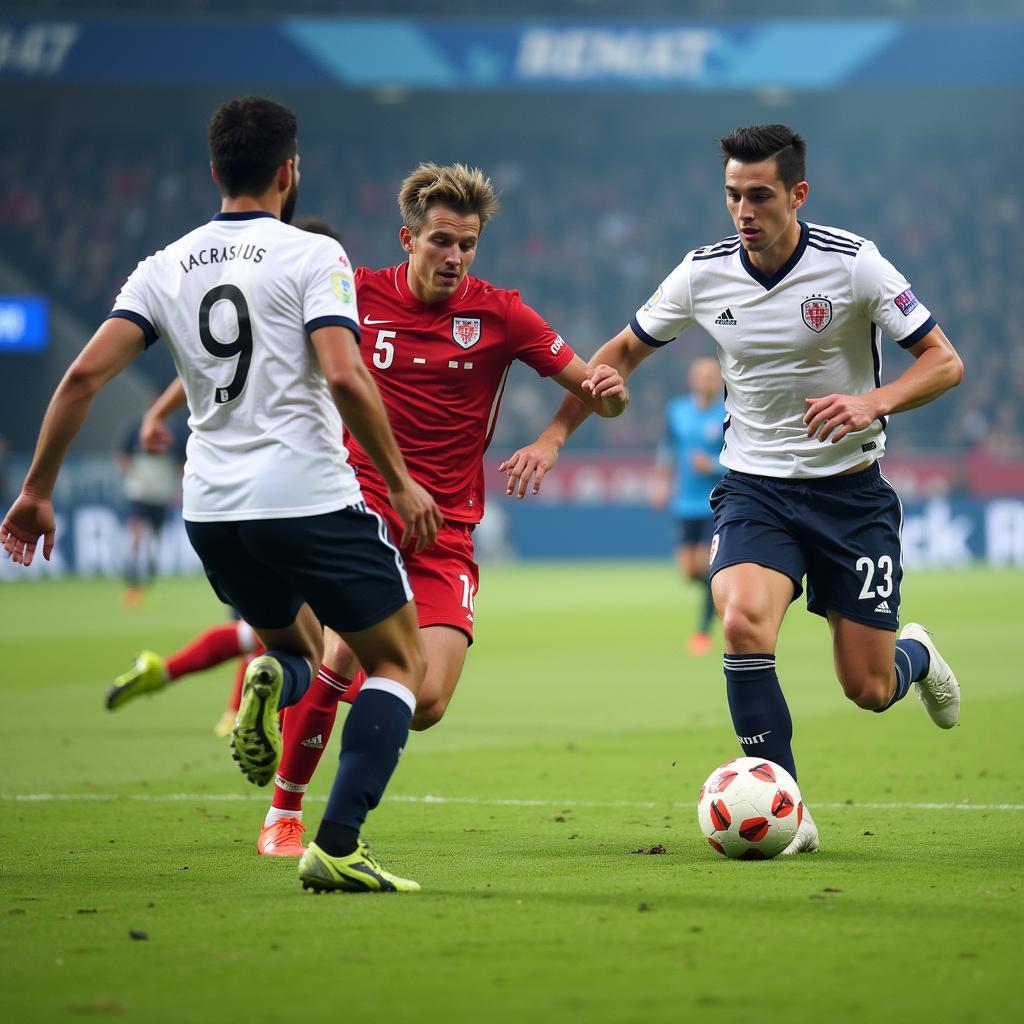Understanding Player Positions in the 4-3-3 Formation
November 12, 2024The 4-3-3 formation is a dynamic and widely used system in football, demanding specific roles and responsibilities from each player. Understanding player positions in the 4-3-3 formation is crucial for both players and fans alike, offering insights into the strategic nuances of the game. This article delves into the specifics of each position within this popular formation, highlighting their key attributes and contributions to the team’s success.
Decoding the Roles in a 4-3-3
The 4-3-3 boasts a potent attacking trident supported by a solid midfield and a robust backline. Each position within this formation contributes to both offensive and defensive phases, creating a fluid and interconnected system. Let’s break down each role:
Goalkeeper
The last line of defense, the goalkeeper’s primary responsibility is preventing the opposition from scoring. Shot-stopping, commanding the penalty area, and distributing the ball effectively are key attributes for any goalkeeper in a 4-3-3.
Defenders: The Foundation of the 4-3-3
The back four in a 4-3-3 consists of two center-backs and two full-backs.
Center-Backs
Center-backs are the heart of the defense, tasked with winning aerial duels, making crucial tackles, and blocking shots. Strong positioning and communication are vital, as they organize the defensive line and provide cover for the full-backs.
Full-Backs
Full-backs in the 4-3-3 require both defensive and offensive prowess. Defensively, they track wingers and prevent crosses. Offensively, they provide width and support the attack with overlapping runs and crosses.
 4-3-3 Full-Back Roles: Offensive and Defensive Responsibilities
4-3-3 Full-Back Roles: Offensive and Defensive Responsibilities
Midfielders: The Engine Room
The midfield trio in a 4-3-3 generally consists of a defensive midfielder and two central midfielders.
Defensive Midfielder
The defensive midfielder, or holding midfielder, acts as a shield for the defense, intercepting passes, breaking up play, and recycling possession. Tactical awareness and disciplined positioning are essential for this role.
Central Midfielders
Central midfielders are the link between defense and attack. They dictate the tempo of the game, distribute the ball, create chances, and contribute defensively. Vision, passing accuracy, and work rate are crucial for these midfielders.
 4-3-3 Midfield Dynamics: Connecting Defense and Attack
4-3-3 Midfield Dynamics: Connecting Defense and Attack
Forwards: The Cutting Edge
The 4-3-3’s attacking force consists of two wingers and a central striker.
Wingers
Wingers provide width and pace, stretching the opposition’s defense. They take on defenders, deliver crosses, and cut inside to create scoring opportunities. Dribbling skills, speed, and crossing accuracy are vital for effective wingers.
Striker
The striker is the focal point of the attack, responsible for scoring goals. Positioning, finishing, and hold-up play are essential attributes for a successful striker in the 4-3-3. As a striker myself, this role demands a combination of clinical finishing and the ability to link up with the wingers and midfielders.
 4-3-3 Attacking Trio: Wingers and Striker Synergy
4-3-3 Attacking Trio: Wingers and Striker Synergy
Conclusion
The 4-3-3 formation demands specific qualities from each player position in the 433, creating a dynamic and balanced system. Understanding these roles is key to appreciating the tactical intricacies of this popular formation. Mastering these positions contributes to the overall success of the team, making the 4-3-3 a formidable force on the pitch.
FAQ
- What are the key advantages of the 4-3-3 formation?
- What are the main weaknesses of the 4-3-3 formation?
- How does the 4-3-3 differ from other formations like the 4-4-2 or 4-2-3-1?
- What are the key attributes for a central midfielder in a 4-3-3?
- How do full-backs contribute to both attack and defense in this formation?
- What are the different variations of the 4-3-3?
- How important is teamwork and communication within the 4-3-3?
Need support? Contact us at Phone: 0396443476, Email: [email protected] Or visit us at: 23 Tháng 3, Đắk Nia, Gia Nghĩa, Đắk Nông, Việt Nam. We have a 24/7 customer service team.